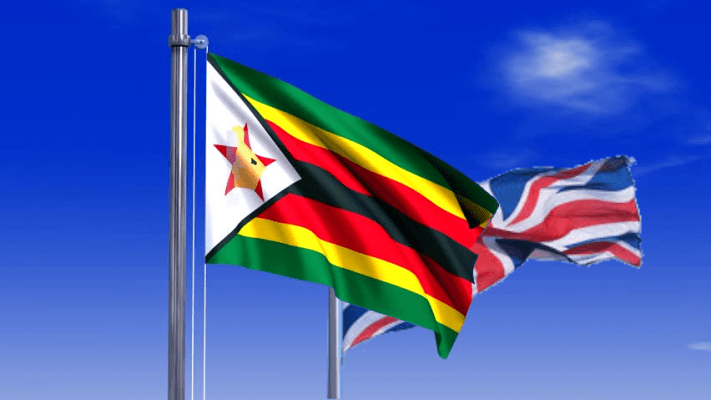Zim ripe for C’Wealth return
Zimbabwe has made significant progress towards re-joining the Commonwealth in yet another
demonstration of the Second Republic’s desire to re-engage with the international community and
end nearly two decades of isolation, according to some analysts.
The Commonwealth delegation was in the country recently as part of its informal assessment of
Harare’s request to re-join the group of 56 countries, mainly former British colonies, and
expressed satisfaction over the progress the country has made.
The Second Republic, under President Mnangagwa applied for readmission to the Commonwealth
in 2018, as part of its re-engagement agenda with the international community.
The commitment to compensate farmers whose land was taken over under the country’s land
rprogramgramme and the scrapping of laws that forced foreign-owned companies to cede 51
percent of their equity to locals are some of the initiatives the southern African nation has made in
its commitment to reclaim position among global family of nations, analysts say.
In a bid to enhance international trade, Zimbabwe participated at the Expo 2020 Dubai where it
was envisaged to open up investment opportunities with the United Arab Emirates as well as other
192 countries that also participated in the event.
Zimbabwe, then under the late former President Robert Mugabe withdrew from the
Commonwealth in 2003 a year after it was suspended for alleged gross human rights abuses.
“Zimbabwe has made significant progress in its journ to rejoine the Commonwealth family. This is
encouraging and we hope that further progress will be made.
“The latest mission by the Commonwealth forms part of the broader membership process and we
look forward to advancing this further,” the Commonwealth assistant secretary-general, Prof Luis
Franceschi said at the conclusion of its mission.
“All the stakeholders we engaged with – the Government, opposition parties, civil society
organisations, religious leaders, and indeed the people of Zimbabwe – are supportive of Zimbabwe
returning to the family.
“We will work together towards that shared goal to ensure this process reaches its proper
conclusion,” she said.
Commonwealth member countries benefit from being part of a mutually supportive community of
independent and sovereign states, aided by more than 80 Commonwealth organisations.
The Commonwealth Secretariat, established in 1965, supports Commonwealth member countries
to achieve development, democracy and peace. The bloc prides itself as a voice for small and
vulnerable states and a champion for young people.
It helps to strengthen governance, build inclusive institutions and promote justice and human
rights. It also helps to grow economies and boost trade, empower young people, and address
threats such as climate change, debt and inequality.
Further, members benefit from training and technical assistance and support to decision-makers
to draw up legislation and deliver transformative policies.
The group deploys experts and observers who offer impartial advice and solutions to national
problems and also provide systems, software and research for managing resources.
At Commonwealth summits, the organisation brings together government leaders whose decisions
will have an enduring impact on all citizens. By uniting member countries in this way, it helps to
amplify their voices and achieve collective action on global challenges.
The work of the Commonwealth also supports the United Nations Sustainable Development Goals
and the Paris Agreement on Climate Change.
Economic analyst Dr Langton Mabhanga applauded the Commonwealth’s position on Zimbabwe,
saying the era of conflict was over and “parties should find each other.”
“It is a re-engagement in the context of re-integration and I see no reason why Zimbabwe should
not be re-admitted. I would like to commend the Commonwealth for being consistent in trying to
re-find each other. We definitely need each other,” he added.
Another analyst Carlos Tadya said Zimbabwe had recently been making significant strides in reengaging with the international community.
“Global recognition is what any country would require to develop and what the Second Republic
has done to re-join the Commonwealth demonstrates its willingness to be part of the global
family,” he said.
“There are conditions that need to be fulfilled of course, some have been (met), (and) some are
work in progress and I see that culminating in a fruitful re-engagement.”
The ruling Zanu PF told the visiting Commonwealth delegation that Zimbabwe was more than
ready to rejoin the bloc but expressed disappointment at the slow pace of the process.
Zanu PF acting secretary for administration Patrick Chinamasa said the discussions were fruitful
and the ruling party was more ready to join the Commonwealth but blamed sanctions as the major
impediment.
“Zanu PF fully supports the application for readmission and we told them so. We do so because as
our President has said on many occasions, we want to be a friend to all and an enemy to none.
“That’s what motivates our application for readmission.
“We have been a valuable member of the club in the past from 1980-2003.
“We have observed and informed the delegation that our application for re-admission was made in
May 2018, four years later we have not yet succeeded.
“Our observation is that the process is too slow, but also we observed that the bench-marking is
skewed against Zimbabwe.
“It’s made too high to a point where it’s not applied to any new members who want to get into the
Commonwealth or to those who want to be readmitted like us,” Cde Chinamasa said.
“Our problem with re-admission should be coming from those countries which imposed sanctions
against us and who are members of the club.
“They have to decide whether they want to lift the sanctions, if they agreed to have us re-admitted
it would follow that they will lift sanctions. We think that is where the problem may be.”
The Commonwealth is a voluntary association of 56 independent and equal countries.
It is home to 2,5 billion people and includes both advanced economies and developing countries.
The last two countries to join the Commonwealth were Gabon and Togo in 2022.-The Herald









